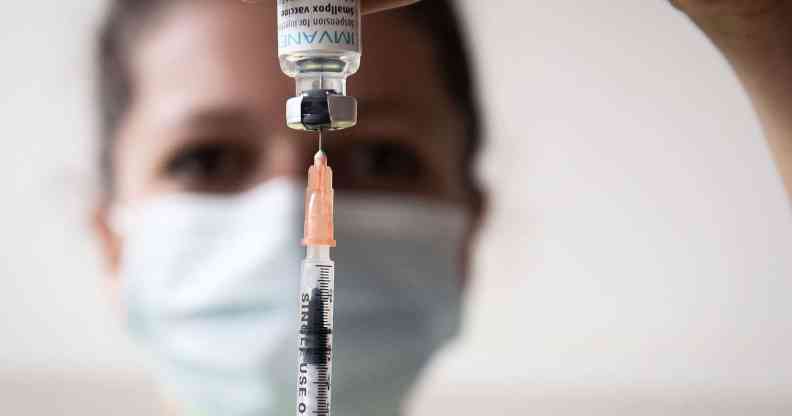World Health Organization forced to tell people not to attack monkeys over monkeypox

At the start of August WHO was forced to ask people not to attack monkeys over monkeypox. (Alain Jocard/Pool/AFP via Getty Images)
The World Health Organization (WHO) has been forced to ask people not to attack monkeys and other animals as monkeypox cases continue to rise globally.
The Washington Post claims WHO’s plea comes as the primates have been physically attacked, and in some cases killed, in Brazil, with at least 10 monkeys reportedly showing signs of being poisoned in the past week.
Margaret Harris, a WHO spokesperson, told reporters on Tuesday (9 August): “What people need to know very clearly is the transmission we are seeing is happening between humans to humans.
“They should certainly not be attacking any animals.
“It’s close-contact transmission. So the concern should be about where it’s transmitting in the human population and what humans can do to protect themselves from getting it and transmitting it.”
Harris added that the monkeypox virus is actually found “much more commonly in various rodents” than in monkeys.
Brazilian newspaper G1 reported the Environmental Military Police will now be reinforcing its patrolling in forested areas of Rio Preto in a bid to prevent attacks on monkeys.
Maurício Lacerda, virologist at Faculty of Medicine of Rio Preto, told the newspaper: “What we are seeing in Brazil, Europe and the United States is person-to-person transmission.
“There is no evidence of monkeypox virus circulating in monkeys in the Brazil. There is no need to panic, there is no need to avoid the monkeys.”
Here's what you need to know if you are recovering from #monkeypox at home 👇
— World Health Organization (WHO) (@WHO) August 7, 2022
According to data from the CDC, 31,800 cases of monkeypox have been confirmed globally – across 89 countries – as of Tuesday (9 August).
New research on the virus has found lesions on the genitals, anus or perianal area are among the most common symptoms of the current outbreak, contrasting to historic symptoms with lesions most commonly found on the face, palms and soles of the feet.
Researchers for the British Medical Journal found that of 197 patients, 56.3 per cent presented with lesions on the genitals, and 41.6 per cent on the anus or perianal area.
The study, published on 28 July, said this “suggests lesions may initially form at the site of inoculation, followed by the development of systemic symptoms and subsequent dissemination of lesions”.
“Systemic symptoms” – which affect the entire body, including fever, swollen lymph nodes, and body aches and pains – more commonly came before lesions in previous outbreaks.
Dr Christopher Duncan, Wellcome Trust clinical research career development fellow at Newcastle University, told Medical News Today: “It is very important that both people who could be at risk of monkeypox infection and clinicians assessing them are aware of the potential symptoms that should prompt testing and appropriate isolation, to limit transmission.”
Despite calls for gay and bisexual men to be vaccinated from the virus, the UK will likely be without monkeypox vaccine doses for another four weeks, leading sexual health groups have warned.
Details of a shortage were released on Wednesday (10 August) when The Financial Times published parts of an internal NHS letter, which claimed there were only 8,300 doses left in the country.
Ceri Smith, head of policy at the Terrence Higgins Trust, told PinkNews the charity is “concerned” about the modelling the UK Health Security Agency (UKHSA) has produced on vaccination.
Smith said: “There has to be that strong leadership in creating a long-term plan, making sure there is a plan for procuring more vaccines, even though we’ll now be at the back of the queue for more doses.
“This can’t just be a UK issue, we’ve really got to work internationally to make sure it’s not just the global north taking up all the supply and putting gay and bisexual men in other countries.”
WHO declared monkeypox a global public health emergency on 23 July.

